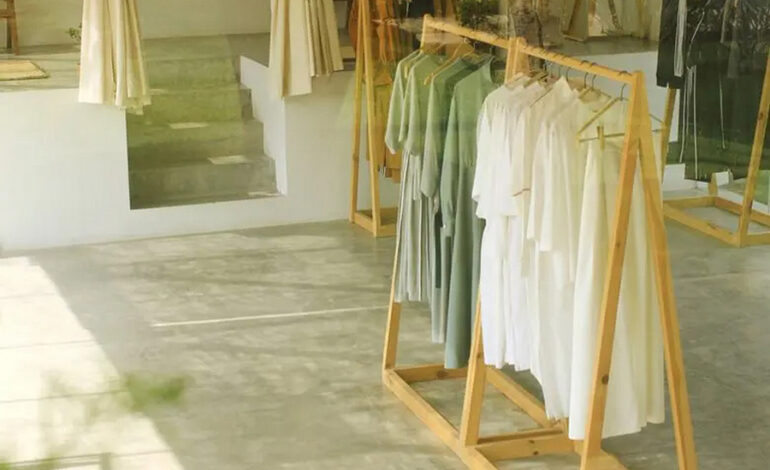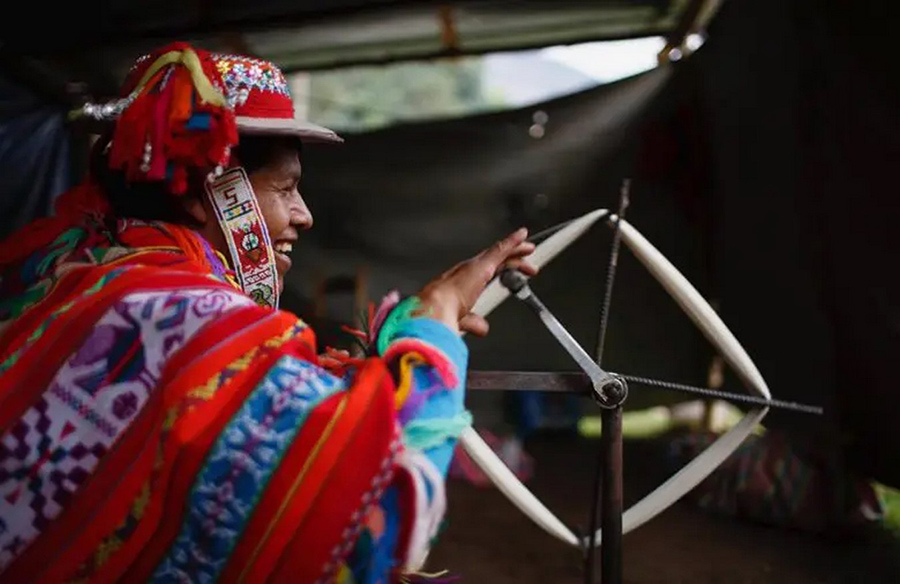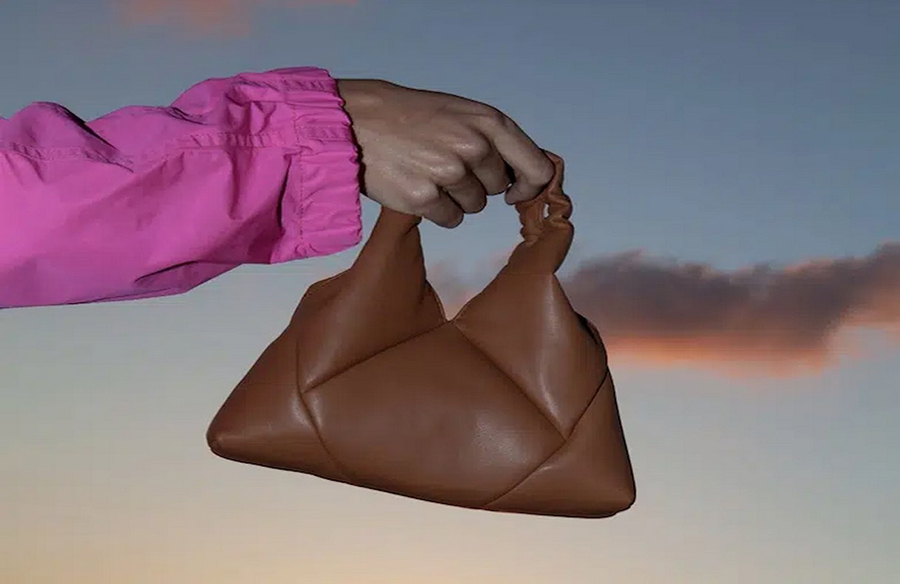22 Sustainable and Ethical South Asian Fashion Brands You Should Know

Introduction
South Asia, encompassing countries such as India, Pakistan, Bangladesh, Nepal, and Sri Lanka, plays a significant role in the global fashion industry. With India and Pakistan ranking among the top ten textile exporters globally, the region contributes over 7% of the world’s textile exports. Beyond its economic impact, South Asia is a major producer of cotton, with a rich history dating back to the Indus Valley Civilization. The region’s influence extends to luxury brands and fast fashion retailers that often manufacture their products here.
South Asia’s Sustainable Fashion Practices
The South Asian subcontinent has a rich heritage in fashion and textiles, incorporating sustainable practices. Traditional fabrics like cotton, silk, and linen are locally produced and widely used. Custom tailoring, prevalent in the region, aligns with sustainable practices, along with a preference for making-to-order. The region boasts thousands of craft techniques, contributing to highly specialized embroidery, weaving, and dyeing.
While historically South Asian brands focused on domestic markets or traditional clothing for the diaspora, recent years have seen a shift. Designers from South Asia, or with South-Asian heritage, are now blending traditional fabrics and artisanal techniques with Western-style silhouettes. These designers have established user-friendly e-commerce platforms, facilitating international access to sustainable slow fashion from South Asia.
What to Look for in Sustainable South Asian Fashion
- Natural Materials
South Asian brands predominantly use natural and local materials such as silk, cotton, and linen. Many source materials directly from farming, weaving, or craft cooperatives, ensuring transparency in material provenance and processing.
- Wages and Working Conditions
Numerous South Asian brands engage with local artisans and small workshops, ensuring a direct and transparent supply chain. Look for brands that provide information on working conditions, regular work, and fair wages to those in their supply chain.
- Certifications
While third-party certifications like GOTS or fair trade are beneficial, smaller South Asian brands may not always have them due to cost constraints. Look for brands that communicate their commitment to using organic materials and fair wages.
- Lead Times and Shipping
South Asian brands often produce in small batches and make clothes to order, reducing waste. However, this may result in longer lead times. Check for production lead times and shipping information before placing an order.
Sustainable South Asian Fashion Brands
JODI
Pune-based JODI utilizes traditional printing techniques like block printing and bandhani to craft patterned masks, scarves, and dresses. The brand maintains transparency in its supply chain, providing information on the sourcing of each fabric.
Bodice
New Delhi-based Bodice is renowned for pleated dresses and shirts, committed to natural materials like wool, cotton, and silk. The brand emphasizes sustainability with plant-based dyes and locally sourced materials.
Runaway Bicycle
Mumbai-based Runaway Bicycle offers slouchy-yet-structured blazers, dresses, and sets made from handwoven cotton and linen. The brand focuses on designing timeless pieces while sourcing high-quality fabrics from artisans.
Oshadi
Tamil Nadu-based Oshadi is building a regenerative cotton supply chain, producing colorfully-printed dresses from hand-loomed organic cotton. The brand also supplies material to international brands.
The Summer House
Bangalore-based The Summer House creates flowy dresses, trousers, and shirts using sustainable materials like khadi, organic cotton, silk, linen, and Econyl. The brand collaborates directly with NGOs and craftspeople.
Roopa Pemmaraju
New York-based Roopa Pemmaraju produces patterned pieces made-to-order in her Bangalore atelier, prioritizing sustainable materials and artisanal techniques like hand-weaving and hand embroidery.
Rias Jaipur
Jaipur-based Rias Jaipur is dedicated to preserving Khadi through hand-block printing. The brand translates old-world techniques into modern patterns on contemporary silhouettes.
11.11 / eleven eleven
New Delhi-based 11.11 / eleven eleven crafts tailored separates from khadi cotton and Ahimsa silk, using natural dyes and tie-dye techniques. The brand operates globally with a concept store in Tokyo.
Doodlage
New Delhi-based Doodlage upcycles waste into paneled trousers, dresses, and jumpsuits, adhering to a zero-waste commitment. Scraps from production are used for accessories or packaging.
Lovebirds
Delhi-based Lovebirds offers elegant, block-printed dresses and jumpsuits with locally-sourced materials. The brand repurposes waste into cross-body bags, masks, and upcycled handwoven fabric.
Khara Kapas
Gurgaon-based Khara Kapas sells dresses and shirts in earthy tones made of 100% organic cotton dyed with vegetable dyes. The brand is committed to using homegrown Indian fabrics.
LOTA
Delhi-based LOTA creates playful, patchwork shirts from fabric scraps, minimizing its environmental footprint. The brand models its clothes on CGI-models for Instagram content.
Ka-Sha
Pune-based Ka-Sha produces bold printed and patchworked pieces using materials sourced directly from artisan groups across India. The brand focuses on sustainable partnerships and has a sister label, Heart to Haat, for upcycling textile waste.
Rastah
Lahore-based Rastah reinterprets traditional South-Asian techniques on Western streetwear silhouettes. The brand collaborates with artisan families to craft bold, graphic jackets and hoodies.
Sustainable South Asian Fashion in Accessories
Raff
Amsterdam-based Raff produces sleek leather bags in an Auroville factory committed to fair wages and comfortable working conditions, using vegetable-tanned leather.
behno
New York-based behno makes leather purses and wallets at an ethical, solar-powered factory in Gujarat. Workers receive fair wages, health services, family planning, and education for their children.
Aranyani
Bengaluru-based Aranyani creates leather bags adorned with stones or embroidered motifs. The brand aims to reduce its carbon footprint and achieve zero-waste by 2025.
Sustainable South Asian Jewelry Brands
Real State
Mumbai-based Real State upcycles waste marble into statement jewelry pieces strung onto gold-plated chains, shipped in handmade, upcycled fabric pouches.
Zola
Chennai-based Zola collaborates with rural artisans, turning traditional crafts into wearable art. Techniques include Bidri inlay work and Dhokra lost-wax metal casting.
Zohra Rahman
Lahore-based Zohra Rahman hires individuals without specialist skills, providing apprenticeships and training for making sterling silver jewelry, creating jobs and sustainable incomes.
Saeeda Etebari
Kabul-based Saeeda Etebari handcrafts stacked elements of sterling silver, brass, and gold-plate, creating structural statement pieces exhibited at prestigious institutions.
S jo
London-based S jo partners with female artisans in rural Pakistani villages, co-creating stand-out textile jewelry in design workshops, providing sustainable, fair-wage income opportunities.
In conclusion, South Asia’s sustainable and ethical fashion landscape reflects a commitment to tradition, craftsmanship, and environmental responsibility. Explore these 22 brands to support fashion that prioritizes sustainability and social impact.









